Can Saudi Arabia's bold reforms cure growing financial woes?
- Published
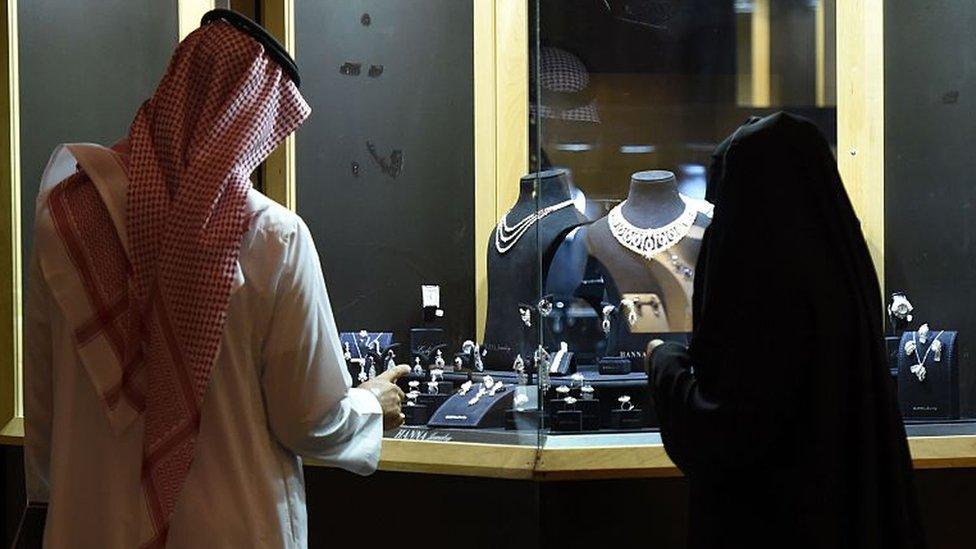
Saudis are having to adjust to a tougher economic climate
It has been a dramatic week for the Saudi economy: the country has slashed public spending, and rowed back from its 18-month policy of pumping out oil at near maximum levels by reducing daily production by 350,000 barrels.
Oil prices jumped 5% at the news, a market overreaction to be sure, but nevertheless a welcome development for producer states. They need to see a turnaround in their government revenues which have been depressed for the last 18 months.
But the kingdom's shift in policy indicates that not all is well financially. Indeed the Saudi attempt to maintain market share through maximising output and artificially keeping oil prices low appears to have backfired.
Unable to absorb low prices for an extended period, the kingdom has lost some $180bn (£140bn) of currency reserves, as it has had to dig deep into its pockets to cover enormous government spending deficits.
In fairness, Saudi Arabia's leadership, under the guidance of Deputy Crown Prince Mohammed bin Salman, has been remarkably open about the extent of the problems.
In an interview with Bloomberg, external magazine in April, the grim reality was laid bare by Prince Mohammed's senior financial adviser: the state was wasting up to $100bn a year in inefficient spending, backhanders and opaque business deals, he said, and would have gone broke "by early 2017" unless something radical was done to change course.
Grand plan
And so for the nation to remain solvent there was always going to have to be some financial pain - pain which would filter into the real economy and down to the vast body of Saudi nationals employed in government sectors.
Government spending would need to be scaled down, and subsidies on everyday goods and services such as power, water and fuel would need to be lifted.
Last but not least expenditure on salaries would need to be reduced, which means either people lost their jobs, or they lost their perks.
Given that Saudi society builds and cements social relationships around the provision of government jobs, firing people is extremely difficult without causing offence.
This meant that public salaries had to be cut, and in June the Saudi government set a target to reduce salary expenditure by 24bn riyals ($6.4bn; £4.9bn) a year by 2020.
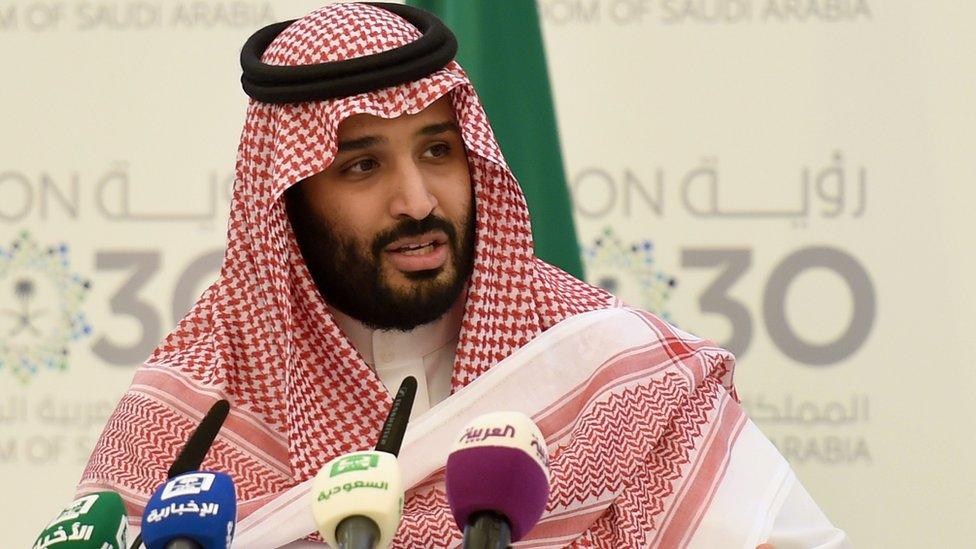
Deputy Crown Prince Mohammed bin Salman is the driving force behind the changes
It is no surprise then that on Monday evening a series of royal decrees cut salaries by as much as 20%, shrunk holiday pay and leave allowances and cut bonuses.
These cuts all fall broadly within the vision set out by Prince Mohammed earlier in the year.
Vision 2030 is the grand plan for restructuring the Saudi economy, diversifying away from hydrocarbon exports by encouraging Saudis to join the private sector, and privatising sections of Aramco, the oil producing behemoth that still drives Saudi income and domestic revenue.
But for all its lofty goals, it is unlikely that the vision can ever be fully implemented, and it is sensible to assume that Vision 2030 was never designed to be the panacea for Saudi Arabia's myriad financial woes.
Even some leading Saudis have been open about the vision's expected level of success, insisting that it is more about changing the national Zeitgeist than radically overhauling the economy in such a short space of time.
Social impact
If this can be achieved, and the ruling house is able to persuade its citizens to accept that the good times are over, then all should be well for the time being.
The al-Saud family enjoy widespread popular support in the Kingdom, and the young prince and his team have expended great energy warning that austerity is coming.
But it is one thing to warn about austerity, and quite another to then implement it.
As increasing austerity measures are introduced, Saudi Arabia's middle class looks set to join the "squeezed middle".
It is an overused Western term, but make no mistake it will be Saudi's middle earners who will struggle in the months and years ahead.
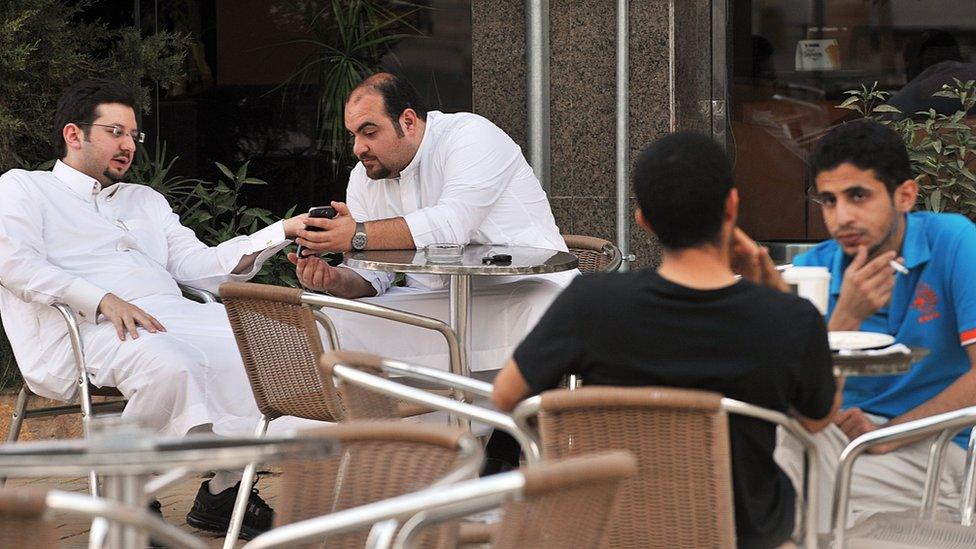
Riyadh will have to be wary of the social impact of the cuts
Reductions in subsidies and salary cuts will affect this middle bracket the most - in other words the people who possess just enough money to run a household and send children to school.
So the addition of higher bills and less income at the end of the month will put a huge amount of pressure on this important sector of the Saudi economy.
Observing from the outside, cutting bloated public expenditure seems the right thing to do and is long overdue, but it will have social impacts that no-one can foresee at present.
Saudi Arabia is moving into a difficult period in which its society will have to get used to leaner times, and still keep their faith that the royal family is steering the country in the right direction.
Michael Stephens is Research Fellow for Middle East studies and Head of Rusi Qatar. Follow him on Twitter, external
- Published27 September 2016
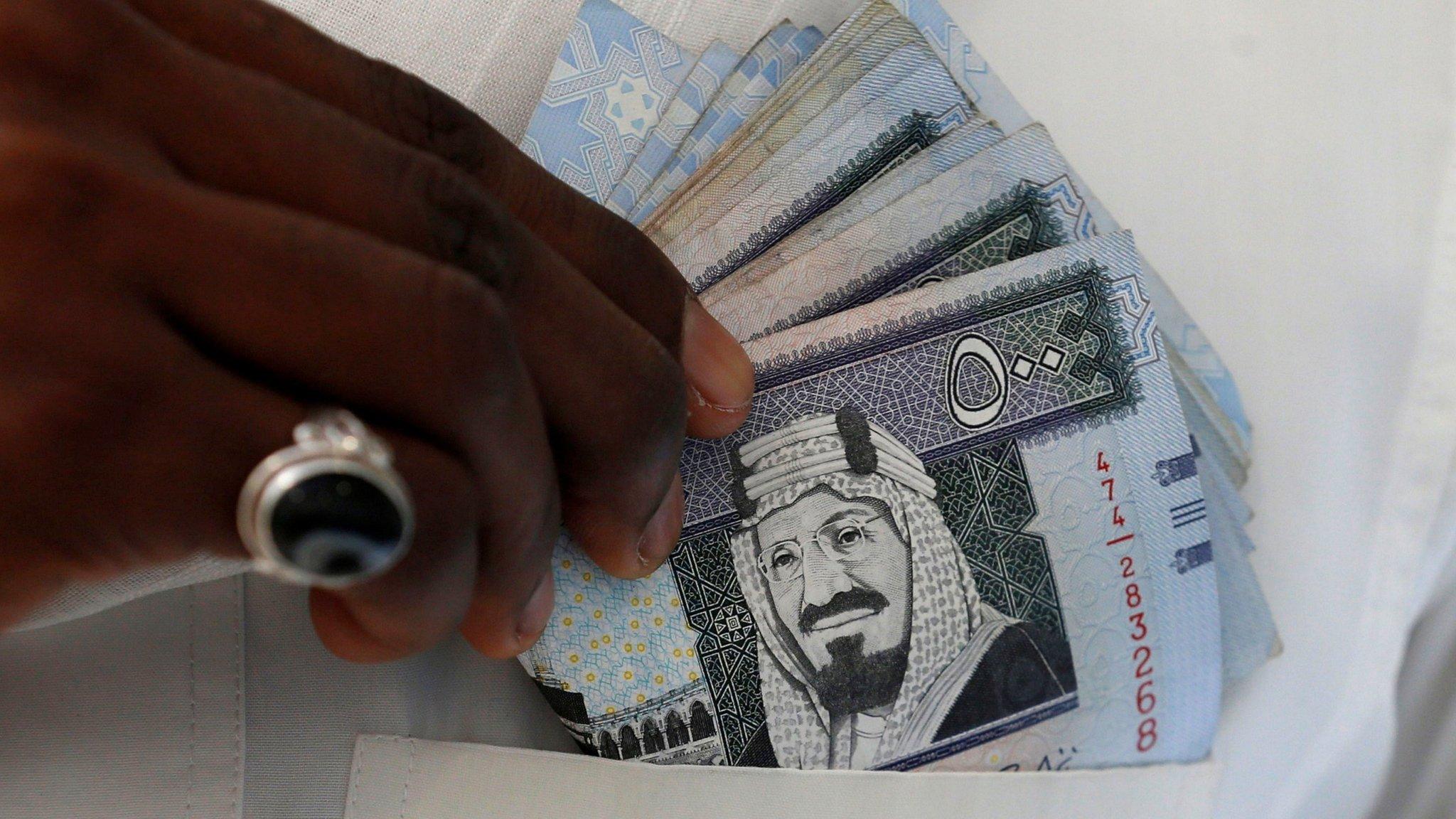
- Published25 April 2016
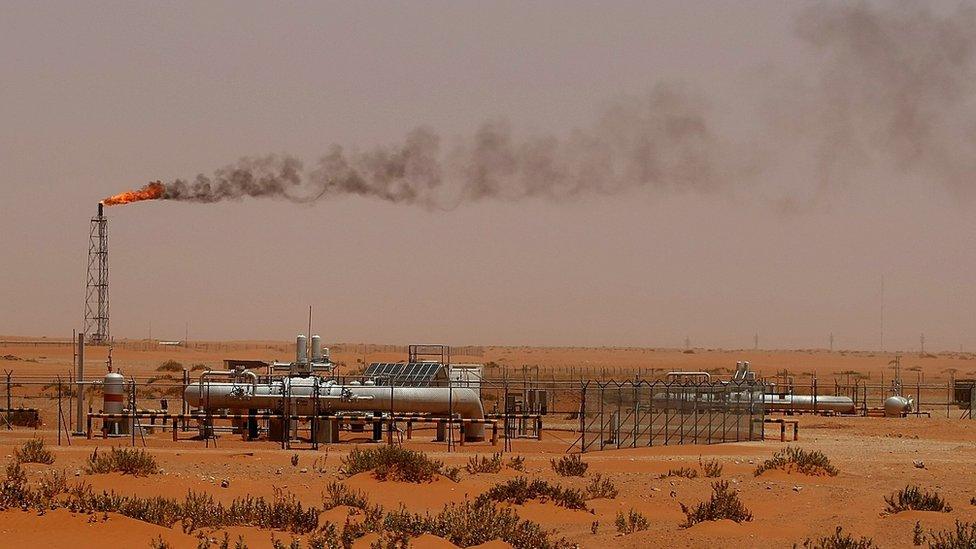
- Published26 April 2016
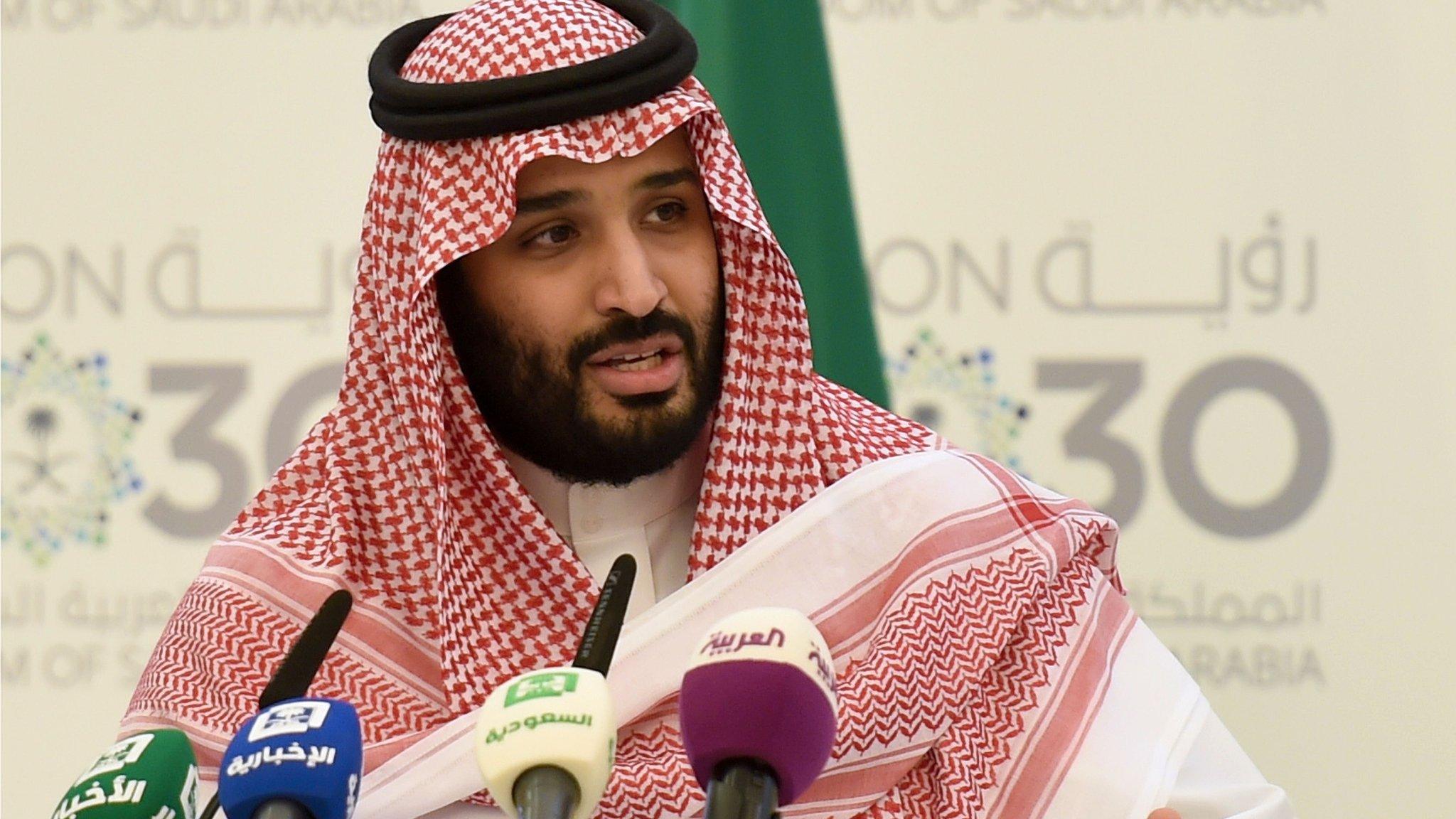
- Published25 April 2016